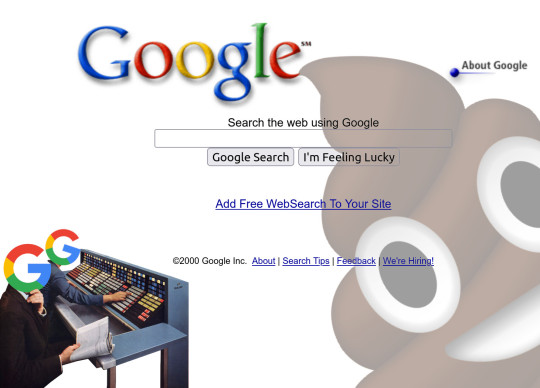#gig employee
Text
Skilled Nursing Operator Takes Legal Action Against Staffing Platform for Alleged Overbilling
A little over a week ago, an SNF operator dropped a lawsuit in U.S. District Court in the District of Utah against a staffing platform that works somewhat, like a staffing agency. The platform Nursa acts as a software clearinghouse connecting nursing staff (RNs. LPNs, CNAs, etc.) to facilities with open shifts – “Nursa exists to put a nurse at the bedside of every patient in need, connecting…
View On WordPress
#1009#Clipboard#Compliance#Department of Labor#DOL#Employment#Final Rule#gig employee#Industry Outlook#Labor#lawsuit#litigation#Management#Money#Nursa#Nursing Homes#nursing staff#Oxford Valley Health#ShiftKey#SNF#staffing#Staffing Agencies#Strategy#Trends#Washington
1 note
·
View note
Text
// oc picrew. [x]
tagged by; @roseeway, thank you so much!!
tagging; @mojaves, @lestatlioncunt, @dickytwister, @ncytiri, @elgaravel and YOU!










ambrose hawthorne [he/him] // cato wu [she/her]
eddie wolfe [he/they] // hanan chisaka [she/her]
lauren dimas [she/her] // luna serratos [she/they]
nimue nkuna [she/he] // ramiel al-masri [he/him]
reuben de la rosa [he/him] // rikki valentine [she/her]
#tag games#picrew games#this one was fun :] they're all cyberpunk ocs btw so i didn't mention it for any of them. i have a lot of guys for that game#ambrose is a retired arasaka special ops agent who used to get sent after rogue employees. was known as the reaper on arasaka grounds#cato is one of vitali's mercs and is on the run from kang tao. she's a very good driver#eddie is also one of vitali's mercs and does a lot more bodyguard stuff since they used to be a bouncer at a club#hanan is ex arasaka special programs where she was security guard and then became a test subject and now she's with the cobras#lauren is also one of vitali's mercs and she's a netrunner specifically and arguably one of the best in her field#luna is a ripperdoc and mechanic and tattoo artist with a little shop in night city and is best friends with the cobras#nimue is one of vulture's bloodhounds. minds his business most of the time she's not very involved with any of the others#ramiel or just rami is again one of vitali's mercenaries but he also does gigs for aubrey so he's basically a link between the two fixers#reuben is ex maelstrom (never a member by choice) and now works at club bodytalk for aubrey#and rikki is aubrey's younger sister and also works at club bodytalk AND is leader of santa madre (branch of the valentinos)#reblog to give them all a big ol kiss
29 notes
·
View notes
Text
Labour turns its back on workers’ rights
“Labour has undermined the principle of universality that underpins its entire programme for employment rights. This means a tiered system of rights and entitlements will remain in place and makes the pledge to give all workers the same rights from day one impossible.
“When the New Deal was originally developed, the Labour leader, his cabinet and the party’s affiliated trade unions shared a vision. They sought to build a dignified workplace in which workers – from the moment they took up employment – would have the ability to take time away after the birth of a child or a bereavement, to enjoy a decent work-life balance and not to be arbitrarily dismissed.
“The document was a recognition of the fact that the tiered system is one of the key drivers of low pay and insecurity, responsible for 3.7 million being trapped in ‘insecure work’ who do not know when their next shift will be or if they will be able to pay their bills ... The New Deal was designed to end the most exploitative practices in the gig economy – where workers are often paid below the minimum wage, made to work in dangerous conditions and denied rest breaks. One such example is Amazon delivery drivers, who have been forced to drive through exhaustion and urinate in bottles ...
“The lack of rights and protections is not just a problem for those in insecure forms of work. It is a problem for workers and the economy as a whole. These practices put a downward pressure on wages and terms across the board, making us all poorer and facilitating a race to the bottom that is partly responsible for Britain’s poor growth and productivity.
“The expansion of the gig economy in particular demonstrates how exploitative employment practices threaten once-secure jobs. The assault by Royal Mail against the terms and conditions of posties, for example, is a response to gig economy parcel delivery companies undercutting the postal service.”
#workers rights#employment rights#workers#working class#employees#self-employed#keir starmer#labour party#labour#labour rights#labor rights#maternity leave#maternity pay#paternity leave#paternity pay#redundancy pay#flexible working#amazon#gig economy#uk
6 notes
·
View notes
Note
I come with shippy blorbo content(they're standing next to each other right?). They're proud of you btw 😌

Oh I love shippy blorbo content 🥺 Standing next to each other is significant indeed 😌💕
#this seems like the appropriate time to talk about my ideas for the exit inc. hitmen AU#(see @rbf451's tags on my 'rating the new profile pictures based on how intimidating they look' post)#so olli and aleksi are not together. in fact their relationship is purely professional (yeah right)#until olli gets injured during a gig (a hitman gig that is) and aleksi has to rescue him and take care of his injuries#and the panic of seeing olli hurt makes aleksi realise how it would destroy him if something happened to olli 🥺#cue mutual pining and secret touches/looks because relationships between employees of exit inc. are strictly forbidden#(until they can't help themselves anymore)#also can you tell me i have no clue how that hitmen business actually works 😂#ollixallu
7 notes
·
View notes
Text
i overdrew my account today because i’m dumb and thought something cleared when it hadn’t, so immediately after getting off my 10 hour desk job shift i started doing some instacart deliveries to try and make up the cash before the grace period from my credit union expires, and my very first delivery of the night tipped me over $20 T-T
#the oblivious kindness of strangers has nearly moved me to tears#i just got home from ~4 hours of gig work and made exactly the amount i needed to avoid bank fees. i’m emotional.#not because of the gig work - gross - but because of the mom who had her little girl shyly hand me $10 cash#and the fast food employee who ‘accidentally’ voided out my order at the register so i didn’t have to pay#(i made him take the $10 as tip anyway because i can’t use the cash to balance out my bank tonight anyway and he deserved it)#the core goodness of humanity got me okay!!! so what!!!
4 notes
·
View notes
Text
i miss my teachers aide job so much i could cry
#i enjoy my current job dont get me wrong. and im insanely lucky to be a permanent employee#but i loved being a teachers aide so deeply#if it paid a living wage and if it wasnt all temp gigs i would go back in a heartbeat#personal#job tag
1 note
·
View note
Text
Comparing Paths: Understanding the Differences Between Employee Hiring Models
Hey there, business wizards and HR gurus! Are you scratching your head over the best way to build your dream team? Well, you're not alone. The age-old debate of outsourcing vs staff augmentation has kept many managers up at night, tossing and turning like a pancake on a hot griddle. But fear not! We're here to unravel this mystery and help you navigate the labyrinth of hiring models. So grab a cup of coffee (or tea, if that's your jam), and let's dive in!
On-Site Employment: The Classic Recipe
Let's kick things off with the OG of hiring models – on-site employment. It's like the vanilla ice cream of the business world: classic, reliable, and always there when you need it. You know, the hiring that your grandpa would nod approvingly at over his morning newspaper.
So, what's the deal with on-site employment? Well, it's what it says on the tin. Your employees come to your office, sit at their desks, and work their magic under your nose.
Now, before you start yawning and reaching for another cup of coffee, let's talk about the perks of this tried-and-true model. First, it's great for team building. When your crew is all in one place, it's easier to foster a sense of camaraderie.
Another big plus is direct supervision. With everyone under one roof, you can closely monitor projects and nip any issues in the bud.
But let's not sugarcoat it – on-site employment isn't all sunshine and rainbows. It can be pricier than a designer handbag, what with office space, equipment, and those fancy ergonomic chairs everyone's been asking for. (Who knew sitting could be so expensive?) And let's not forget about geographic limitations. Your talent pool is limited to people who can physically come to your office.
So, who's this model best for? Industries that require a lot of face-to-face interaction or hands-on work thrive with on-site teams. Think healthcare, manufacturing, or retail. It's also great for roles that involve a lot of collaboration or require access to specialized equipment.
Freelance Model: The Gig Economy's Golden Child
Next, on our tour of hiring models, we've got the freelance approach. It's the wild child of the bunch—flexible, independent, and always ready for a new adventure.
Freelancing is like ordering à la carte at a restaurant. You pick what you want, when you want it, without committing to a whole three-course meal. Need a graphic designer for a one-off project? Bam! Hire a freelancer. Looking for a writer to jazz up your website? There's a freelancer for that, too. It's like having a buffet of talent at your fingertips. One of the biggest perks of the freelance model is flexibility.
Another major plus? Access to a global talent pool. With freelancing, your next star employee could be sipping coconut water on a beach in Bali or bundled up in a cozy café in Copenhagen.
But hold your horses – freelancing isn't all rainbows and unicorns. It can be a bit like herding cats. Freelancers often juggle multiple clients, so you might not always be their top priority. And let's not forget about the potential for miscommunication when working with someone not integrated into your team.
So, when does freelancing shine? It's perfect for project-based work or when you need specialized skills for a short period. Think web development, content creation, or graphic design.
Staff Augmentation: The Best of Both Worlds?
Now, let's talk about the rising star in the hiring world – staff augmentation. It's like the cool new kid on the block with whom everyone wants to be friends. You know, the one with the latest gadgets and the effortless style that makes you wonder, "Why didn't I think of that?"
So, what's the deal with staff augmentation? Well, it's like inviting talented folks to join your team temporarily. These are different from your typical short-term freelancers, though. They're more like extended family – they stick around longer and get more integrated into your team.
One of the most significant advantages of staff augmentation is that it lets you beef up your team without the long-term commitment of hiring full-time employees. Need an extra pair of hands for a big project? Abracadabra! You've got reinforcements.
Another cool thing about staff augmentation? It gives you access to specialized skills that you might only need on a part-time basis.
But let's keep it real – staff augmentation has its challenges. Integration can sometimes be tricky. It's like adding new players to a sports team mid-season – there might be a bit of an adjustment period as everyone learns to play together. And let's not forget about the potential for knowledge gaps when the augmented staff leaves.
So, who benefits most from staff augmentation? It's great for industries that experience fluctuating workloads or need specialized skills for specific projects. Think IT companies, marketing agencies, or startups scaling rapidly.
Outsourcing: Delegating Like a Boss
Last but not least, let's chat about outsourcing. It's like the chameleon of the hiring world – adaptable, versatile, and full of surprises. You never quite know what you'll get, but when it's good, it's terrific.
Outsourcing is handing over entire functions or projects to an external company. It's like ordering takeout instead of cooking—you get the result without worrying about the process.
One of the biggest perks of outsourcing is cost savings. By delegating work to regions with lower labor costs, companies can often get more bang for their buck.
Another significant advantage is the ability to focus on core competencies. Outsourcing non-core functions allows you to channel your energy into what you do best.
But outsourcing isn't all smooth sailing. Quality control can be challenging when you're not directly overseeing the work. And there's always the risk of miscommunication or cultural differences when working with teams in different parts of the world.
Outsourcing shines in industries where certain functions can be separated from core operations. Think customer service for tech companies, manufacturing for fashion brands, or data entry for financial firms. It's like having a clone of your business in another part of the world – working while you sleep.
Staff Augmentation vs Project Outsourcing: The Showdown
Now that we've established the facts, let's examine the two hottest contenders in the hiring arena: IT staff augmentation vs. outsourcing. It's like watching a heavyweight boxing match, but they're trading business benefits instead of punches.
We have a model about flexibility and integration in the staff augmentation corner. It's like adding a turbo boost to your existing team. You bring in skilled professionals who work alongside your permanent staff, filling skill gaps and providing extra muscle when needed.
We have a model focused on delegating entire projects or functions in the project outsourcing corner. It's like handing the keys to a specific part of your business and saying, "You drive for a while."
So, how do these two stack up? Well, staff augmentation gives you more control over the work process. You're still in the driver's seat, directing and integrating the augmented staff into your team. It's great when you need to maintain a high level of oversight or when the work is closely tied to your core business.
Project outsourcing vs. staff augmentation, on the other hand, offers a more hands-off approach. You're hiring a team to deliver a finished product or service. It's ideal when you have clearly defined projects or when you're dealing with functions that are outside your core competencies.
Regarding cost, both models can offer savings compared to traditional hiring, but in different ways. Staff augmentation can be more cost-effective for shorter-term needs or when you require specialized skills intermittently. Project outsourcing often shines in terms of long-term cost savings, especially when dealing with large-scale or ongoing projects.
Both models offer advantages in terms of scalability. Staff augmentation allows you to scale your team up or down quickly, like an accordion expanding and contracting. Project outsourcing can handle sudden spikes in workload by leveraging the outsourcing company's resources.
The choice between staff augmentation and project outsourcing often comes down to the nature of your needs. Need to bolster your team while maintaining close control? Staff augmentation might be your jam. Are you looking to offload entire functions or projects? Project outsourcing could be the ticket.
Choosing Your Perfect Match
So, how do you pick a suitable model for your business? It's like trying to choose the perfect outfit—it depends on the occasion, your style, and what makes you feel fabulous.
What are your pain points? Do you need help with a skills gap in your team? You may be drowning in work and need some extra hands on deck. Or you're looking to cut costs without sacrificing quality. Understanding your needs is like having a treasure map – it'll guide you to the X that marks the spot.
Consider your industry trends. Is your sector embracing remote work? Are there specialized skills that are in high demand? Keeping an eye on industry trends is like having a crystal ball – it helps you anticipate future needs and stay ahead of the curve.
Remember to factor in your company culture. If collaboration and face-to-face interaction are crucial to your success, on-site employment or staff augmentation might be more your speed. If you're all about flexibility and global talent, freelancing or outsourcing could be right up your alley.
And remember, it's not always an either/or situation. Many successful companies use a mix of hiring models to create their perfect talent cocktail.
Wrapping It Up: The Hiring Model Mixtape
Now, we've taken quite the journey through hiring models. We've explored the classic vibes of on-site employment, grooved to the freestyle rhythm of freelancing, jammed with the hybrid beats of staff augmentation, and vibed to the global sounds of outsourcing.
Remember, there's no one-size-fits-all solution to building your dream team. It's all about finding the right mix for your unique business needs. Rock a staff augmentation model for your IT department while outsourcing customer service. Or you'll keep your core team on-site while bringing in freelancers for specialized projects. The possibilities are as endless as a bottomless brunch buffet!
Michael K. Wallace
Michael is an experienced IT professional with over a decade of software development, project management, and business analysis expertise. He has a passion for leveraging technology to drive business growth and innovation. Michael enjoys sharing his insights and knowledge through writing and is dedicated to helping businesses succeed in the ever-evolving IT landscape.
Share in the comments below: Questions go here
#employee hiring models#employment outsourcing#staff augmentations#on-site employment#gig economy#freelancing#delegating
0 notes
Text
Cash Advances and Loans for Gig Workers No Credit Check
Overcoming Financial Challenges: A Comprehensive Guide to Securing Loans and Cash Advances for Gig Workers and Self-Employed Individuals
Introduction
The gig economy has revolutionized the way we work, offering flexibility and autonomy to pursue our passions and entrepreneurial dreams. However, gig workers and self-employed individuals often face unique challenges when seeking financial…

View On WordPress
#1099 contractors#alternative funding options#bank brezzy#BankBreezy#Breezy ConnectCash#business lines of credit#cash advances#cash flow management#co-signed loans#credit unions#direct deposits#emergency funds#employee retention tax credits#financial challenges#financial planning#financial solutions#freelance job marketplaces#gig economy platforms#gig workers#government-backed loans#invoice factoring#invoice financing#loans#no credit check loans#online lending platforms#point-of-sale loans#SBA loans#secured credit cards#Self-Employed#Self-Employed Tax Credit
1 note
·
View note
Text

I am someone who who partakes in therapy (although I also do a lot to improve myself outside of therapy because unfortunately I can sometimes go over a month without a session which sucks but that's life. This blog is something I started after my last therapy session and I actually haven't told my therapist about it yet because I haven't had a session since. That was almost a month ago and I won't see her again until October. I'm going to pretend this doesn't upset me. It helps no one.)
Anyway, I've been thinking about something she said in one of my sessions recently. I had said something along the lines of that "sometimes you just have to let yourself sit with your depression and not do anything but lay in bed until its over. Because sometimes when you push yourself you are just miserable outside of the house rather than in. And sometimes the things that are meant to bring joy don't even remotely lighten your mood."
My therapist asked me who told me that. And I told her "nobody it's just the way it works." as that is my experience. Sometimes I just need to reset where I go nowhere, see nobody, work on nothing, and watch a lot of tv or read a lot of fanfiction with sad music until I feel strong enough to drag my body out of the rut. However, she told me that you're supposed to leave the house, supposed to do something, even when you feel miserable. And I know, the things you are supposed to do aren't meant to suddenly remove the foul mood but it is supposed to make it bearable.
I haven't had a lay in bed depression in a while. Currently, I am sick or have been and wasn't allowed to leave my house a few times without risking infecting someone else (I am fine now, and I wasn't contagious when I was on vacation) and usually that puts me into a really bad depression spell where I do nothing. This time? My bed is a mess, I'm struggling to care for myself, but my desk is also a mess. Which is always a good sign for me because it means that I'm still working even if some days are lighter work than others. I'm still pushing even though a lot of days I just want to curl up in bed and never move again.
So maybe she had a point. I guess. I haven't been leaving the house but I have been holding myself up right. And that really is what matters doesn't it? I didn't do those things to remove the mood. I did them to accomplish something. Even menial.
Previously, I would try to force the mood away at any means necessary. Especially when I used to work at my job that didn't allow for slow days, days where I just needed to intermittently lay down to recharge. Sure, I found time to lay down but it wasn't ever enough to recharge before I had to jump into the action and get up off the cold hard floor. I just had to do eight hours with no breaks where I chugged caffeine and sugar and snacked like crazy until the clock struck punch out time and I could go home and not move for a solid hour.
Those were bad days. I remember once, I can't remember if I was in charge or not, but my coworker was trying to hand me a clipboard and was saying something to me but something in my system had shifted without warning. I've never felt underwater like that before. His voice was near impossible to hear, even harder to comprehend, and I just stopped moving. Like I was in the bottom of a whirlpool. And then I crashed to the surface everything came back into sharp focus, and I started moving again. My coworker had said they weren't even sure I was hearing them for a second. That is my life.
The amount of times my coworkers had to accommodate me (management is entirely clueless about) when my tic disorder would have an episode and I had to be away from customers until they calmed down because I couldn't do my job effectively. Or when I used to have really bad panic attacks all the time. The last one I thankfully fixed. And it became a very rare problem that I could work through feeling my hands or not.
But I grew so tired of that. After a while you have to you know? And I guess I couldn't separate the difference between pushing through to the brink of overexertion with the pushing through just enough to allow air into my lungs. Because to me they would result in the same near death experience.
And that's the problem with toxic environments isn't it? They reshape your brain, make you believe that all environments are toxic until you learn to separate the difference. Until you step away from the environments trying to kill you. There is something so addicting about toxicity.
#muerteporfavor#writing#writblr#word vomit#tw: depression#tw: abuse#tw: panic attack#tw: tic disorder#musings of an ex-employee#we know the cycle will continue at any job#most jobs even your little retail gigs will suck you dry in the name of profit#its only a matter of time
0 notes
Text
Unveiling the Real Meaning of Diversity, Inclusion, and Belonging
Dear community, thank you for being a beacon of support and inspiration. As we navigate this journey together, your insights and perspectives enrich our collective wisdom. Here's to growth, collaboration, and building a brighter future for all! 🌟
Photo by geralt on Pixabay
In the contemporary world of work, the terms Diversity, Inclusion, and Belonging (DIB) have taken center stage. However, understanding the nuanced differences and interconnections among these concepts is crucial for fostering a truly inclusive work environment. This comprehensive guide aims to unpack the essence of DIB, its significance in the workplace, and the…

View On WordPress
#&039;For All&039; workplace#authentic self#Belonging#bias reduction#Decision-making#DEIB measurement#DIB#DIB strategies#diversity#diversity compliance#Employee Engagement#employee surveys#equitable environment#gig workers#Inclusion#inclusive environment#Leadership#organizational mission#organizational performance#organizational values#psychological safety#systemic inequality#talent pool#workplace culture
0 notes
Text
A study provides new information about the people who work as nonemployee contractors for businesses and online services.
0 notes
Text
Google’s enshittification memos

[Note, 9 October 2023: Google disputes the veracity of this claim, but has declined to provide the exhibits and testimony to support its claims. Read more about this here.]

When I think about how the old, good internet turned into the enshitternet, I imagine a series of small compromises, each seemingly reasonable at the time, each contributing to a cultural norm of making good things worse, and worse, and worse.
Think about Unity President Marc Whitten's nonpology for his company's disastrous rug-pull, in which they declared that everyone who had paid good money to use their tool to make a game would have to keep paying, every time someone downloaded that game:
The most fundamental thing that we’re trying to do is we’re building a sustainable business for Unity. And for us, that means that we do need to have a model that includes some sort of balancing change, including shared success.
https://www.wired.com/story/unity-walks-back-policies-lost-trust/
"Shared success" is code for, "If you use our tool to make money, we should make money too." This is bullshit. It's like saying, "We just want to find a way to share the success of the painters who use our brushes, so every time you sell a painting, we want to tax that sale." Or "Every time you sell a house, the company that made the hammer gets to wet its beak."
And note that they're not talking about shared risk here – no one at Unity is saying, "If you try to make a game with our tools and you lose a million bucks, we're on the hook for ten percent of your losses." This isn't partnership, it's extortion.
How did a company like Unity – which became a market leader by making a tool that understood the needs of game developers and filled them – turn into a protection racket? One bad decision at a time. One rationalization and then another. Slowly, and then all at once.
When I think about this enshittification curve, I often think of Google, a company that had its users' backs for years, which created a genuinely innovative search engine that worked so well it seemed like *magic, a company whose employees often had their pick of jobs, but chose the "don't be evil" gig because that mattered to them.
People make fun of that "don't be evil" motto, but if your key employees took the gig because they didn't want to be evil, and then you ask them to be evil, they might just quit. Hell, they might make a stink on the way out the door, too:
https://theintercept.com/2018/09/13/google-china-search-engine-employee-resigns/
Google is a company whose founders started out by publishing a scientific paper describing their search methodology, in which they said, "Oh, and by the way, ads will inevitably turn your search engine into a pile of shit, so we're gonna stay the fuck away from them":
http://infolab.stanford.edu/pub/papers/google.pdf
Those same founders retained a controlling interest in the company after it went IPO, explaining to investors that they were going to run the business without having their elbows jostled by shortsighted Wall Street assholes, so they could keep it from turning into a pile of shit:
https://abc.xyz/investor/founders-letters/ipo-letter/
And yet, it's turned into a pile of shit. Google search is so bad you might as well ask Jeeves. The company's big plan to fix it? Replace links to webpages with florid paragraphs of chatbot nonsense filled with a supremely confident lies:
https://pluralistic.net/2023/05/14/googles-ai-hype-circle/
How did the company get this bad? In part, this is the "curse of bigness." The company can't grow by attracting new users. When you have 90%+ of the market, there are no new customers to sign up. Hypothetically, they could grow by going into new lines of business, but Google is incapable of making a successful product in-house and also kills most of the products it buys from other, more innovative companies:
https://killedbygoogle.com/
Theoretically, the company could pursue new lines of business in-house, and indeed, the current leaders of companies like Amazon, Microsoft and Apple are all execs who figured out how to get the whole company to do something new, and were elevated to the CEO's office, making each one a billionaire and sealing their place in history.
It is for this very reason that any exec at a large firm who tries to make a business-wide improvement gets immediately and repeatedly knifed by all their colleagues, who correctly reason that if someone else becomes CEO, then they won't become CEO. Machiavelli was an optimist:
https://pluralistic.net/2023/07/28/microincentives-and-enshittification/
With no growth from new customers, and no growth from new businesses, "growth" has to come from squeezing workers (say, laying off 12,000 engineers after a stock buyback that would have paid their salaries for the next 27 years), or business customers (say, by colluding with Facebook to rig the ad market with the Jedi Blue conspiracy), or end-users.
Now, in theory, we might never know exactly what led to the enshittification of Google. In theory, all of compromises, debates and plots could be lost to history. But tech is not an oral culture, it's a written one, and techies write everything down and nothing is ever truly deleted.
Time and again, Big Tech tells on itself. Think of FTX's main conspirators all hanging out in a group chat called "Wirefraud." Amazon naming its program targeting weak, small publishers the "Gazelle Project" ("approach these small publishers the way a cheetah would pursue a sickly gazelle”). Amazon documenting the fact that users were unknowingly signing up for Prime and getting pissed; then figuring out how to reduce accidental signups, then deciding not to do it because it liked the money too much. Think of Zuck emailing his CFO in the middle of the night to defend his outsized offer to buy Instagram on the basis that users like Insta better and Facebook couldn't compete with them on quality.
It's like every Big Tech schemer has a folder on their desktop called "Mens Rea" filled with files like "Copy_of_Premeditated_Murder.docx":
https://doctorow.medium.com/big-tech-cant-stop-telling-on-itself-f7f0eb6d215a?sk=351f8a54ab8e02d7340620e5eec5024d
Right now, Google's on trial for its sins against antitrust law. It's a hard case to make. To secure a win, the prosecutors at the DoJ Antitrust Division are going to have to prove what was going on in Google execs' minds when the took the actions that led to the company's dominance. They're going to have to show that the company deliberately undertook to harm its users and customers.
Of course, it helps that Google put it all in writing.
Last week, there was a huge kerfuffile over the DoJ's practice of posting its exhibits from the trial to a website each night. This is a totally normal thing to do – a practice that dates back to the Microsoft antitrust trial. But Google pitched a tantrum over this and said that the docs the DoJ were posting would be turned into "clickbait." Which is another way of saying, "the public would find these documents very interesting, and they would be damning to us and our case":
https://www.bigtechontrial.com/p/secrecy-is-systemic
After initially deferring to Google, Judge Amit Mehta finally gave the Justice Department the greenlight to post the document. It's up. It's wild:
https://www.justice.gov/d9/2023-09/416692.pdf
The document is described as "notes for a course on communication" that Google VP for Finance Michael Roszak prepared. Roszak says he can't remember whether he ever gave the presentation, but insists that the remit for the course required him to tell students "things I didn't believe," and that's why the document is "full of hyperbole and exaggeration."
OK.
But here's what the document says: "search advertising is one of the world's greatest business models ever created…illicit businesses (cigarettes or drugs) could rival these economics…[W]e can mostly ignore the demand side…(users and queries) and only focus on the supply side of advertisers, ad formats and sales."
It goes on to say that this might be changing, and proposes a way to balance the interests of the search and ads teams, which are at odds, with search worrying that ads are pushing them to produce "unnatural search experiences to chase revenue."
"Unnatural search experiences to chase revenue" is a thinly veiled euphemism for the prophetic warnings in that 1998 Pagerank paper: "The goals of the advertising business model do not always correspond to providing quality search to users." Or, more plainly, "ads will turn our search engine into a pile of shit."
And, as Roszak writes, Google is "able to ignore one of the fundamental laws of economics…supply and demand." That is, the company has become so dominant and cemented its position so thoroughly as the default search engine across every platforms and system that even if it makes its search terrible to goose revenues, users won't leave. As Lily Tomlin put it on SNL: "We don't have to care, we're the phone company."
In the enshittification cycle, companies first lure in users with surpluses – like providing the best search results rather than the most profitable ones – with an eye to locking them in. In Google's case, that lock-in has multiple facets, but the big one is spending billions of dollars – enough to buy a whole Twitter, every single year – to be the default search everywhere.
Google doesn't buy its way to dominance because it has the very best search results and it wants to shield you from inferior competitors. The economically rational case for buying default position is that preventing competition is more profitable than succeeding by outperforming competitors. The best reason to buy the default everywhere is that it lets you lower quality without losing business. You can "ignore the demand side, and only focus on advertisers."
For a lot of people, the analysis stops here. "If you're not paying for the product, you're the product." Google locks in users and sells them to advertisers, who are their co-conspirators in a scheme to screw the rest of us.
But that's not right. For one thing, paying for a product doesn't mean you won't be the product. Apple charges a thousand bucks for an iPhone and then nonconsensually spies on every iOS user in order to target ads to them (and lies about it):
https://pluralistic.net/2022/11/14/luxury-surveillance/#liar-liar
John Deere charges six figures for its tractors, then runs a grift that blocks farmers from fixing their own machines, and then uses their control over repair to silence farmers who complain about it:
https://pluralistic.net/2022/05/31/dealers-choice/#be-a-shame-if-something-were-to-happen-to-it
Fair treatment from a corporation isn't a loyalty program that you earn by through sufficient spending. Companies that can sell you out, will sell you out, and then cry victim, insisting that they were only doing their fiduciary duty for their sacred shareholders. Companies are disciplined by fear of competition, regulation or – in the case of tech platforms – customers seizing the means of computation and installing ad-blockers, alternative clients, multiprotocol readers, etc:
https://doctorow.medium.com/an-audacious-plan-to-halt-the-internets-enshittification-and-throw-it-into-reverse-3cc01e7e4604?sk=85b3f5f7d051804521c3411711f0b554
Which is where the next stage of enshittification comes in: when the platform withdraws the surplus it had allocated to lure in – and then lock in – business customers (like advertisers) and reallocate it to the platform's shareholders.
For Google, there are several rackets that let it screw over advertisers as well as searchers (the advertisers are paying for the product, and they're also the product). Some of those rackets are well-known, like Jedi Blue, the market-rigging conspiracy that Google and Facebook colluded on:
https://en.wikipedia.org/wiki/Jedi_Blue
But thanks to the antitrust trial, we're learning about more of these. Megan Gray – ex-FTC, ex-DuckDuckGo – was in the courtroom last week when evidence was presented on Google execs' panic over a decline in "ad generating searches" and the sleazy gimmick they came up with to address it: manipulating the "semantic matching" on user queries:
https://www.wired.com/story/google-antitrust-lawsuit-search-results/
When you send a query to Google, it expands that query with terms that are similar – for example, if you search on "Weds" it might also search for "Wednesday." In the slides shown in the Google trial, we learned about another kind of semantic matching that Google performed, this one intended to turn your search results into "a twisted shopping mall you can’t escape."
Here's how that worked: when you ran a query like "children's clothing," Google secretly appended the brand name of a kids' clothing manufacturer to the query. This, in turn, triggered a ton of ads – because rival brands will have bought ads against their competitors' name (like Pepsi buying ads that are shown over queries for Coke).
Here we see surpluses being taken away from both end-users and business customers – that is, searchers and advertisers. For searchers, it doesn't matter how much you refine your query, you're still going to get crummy search results because there's an unkillable, hidden search term stuck to your query, like a piece of shit that Google keeps sticking to the sole of your shoe.
But for advertisers, this is also a scam. They're paying to be matched to users who search on a brand name, and you didn't search on that brand name. It's especially bad for the company whose name has been appended to your search, because Google has a protection racket where the company that matches your search has to pay extra in order to show up overtop of rivals who are worse matches. Both the matching company and those rivals have given Google a credit-card that Google gets to bill every time a user searches on the company's name, and Google is just running fraudulent charges through those cards.
And, of course, Google put this in writing. I mean, of course they did. As we learned from the documentary The Incredibles, supervillains can't stop themselves from monologuing, and in big, sprawling monopolists, these monologues have to transmitted electronically – and often indelibly – to far-flung co-cabalists.
As Gray points out, this is an incredibly blunt enshittification technique: "it hadn’t even occurred to me that Google just flat out deletes queries and replaces them with ones that monetize better." We don't know how long Google did this for or how frequently this bait-and-switch was deployed.
But if this is a blunt way of Google smashing its fist down on the scales that balance search quality against ad revenues, there's plenty of subtler ways the company could sneak a thumb on there. A Google exec at the trial rhapsodized about his company's "contract with the user" to deliver an "honest results policy," but given how bad Google search is these days, we're left to either believe he's lying or that Google sucks at search.
The paper trail offers a tantalizing look at how a company went from doing something that was so good it felt like a magic trick to being "able to ignore one of the fundamental laws of economics…supply and demand," able to "ignore the demand side…(users and queries) and only focus on the supply side of advertisers."
What's more, this is a system where everyone loses (except for Google): this isn't a grift run by Google and advertisers on users – it's a grift Google runs on everyone.

If you'd like an essay-formatted version of this post to read or share, here's a link to it on pluralistic.net, my surveillance-free, ad-free, tracker-free blog:
https://pluralistic.net/2023/10/03/not-feeling-lucky/#fundamental-laws-of-economics


My next novel is The Lost Cause, a hopeful novel of the climate emergency. Amazon won't sell the audiobook, so I made my own and I'm pre-selling it on Kickstarter!
#pluralistic#enshittification#semantic matching#google#antitrust#trustbusting#transparency#fatfingers#serp#the algorithm#telling on yourself
6K notes
·
View notes
Photo

Why there are so many "Ghost Jobs" haunting hiring websites
The Wall Street Journal recently published a piece on the rise of ghost jobs. Sadly, these jobs are nowhere near as fun as they sound; on a purely philosophical level, I'd actually prefer it if poltergeists had found a way to posthumously saddle themselves to the oppressive angst of capitalism than the actual reality of what these "ghost jobs" entail. — Read the rest
https://boingboing.net/2023/03/30/why-there-are-so-many-ghost-jobs-haunting-hiring-websites.html
#Post#bullshit jobs#economic sadism#Economy#employee shortages#employement#employment#full employment#gig economy#job interviews#job loss#job security#jobs#jobs guarantee#layoffs#pop-up employees#Thom Dunn#Boing Boing
0 notes
Text
Graduating and going to work in education before grad school is actually great bc I have prolonged the portion of my life in which I get lil vacations from working on stuff with the exception of my other job bc the downside is that working in education does not pay well
#I went from being in special ed to being in special ed but as an employee#I also work as a care assistant#and some gig work too
0 notes
Text
Danny became the head assistant to one Timothy Drake-Wayne after nearly 20 years of being retired from the hero gig. In Danny's opinion,no 16 year old should be managing a multi - million dollar company as a pass time instead the fricking grown adult who owned said company... *cough,cough .....Bruce Wayne.
But then again,what did he know, alot.....he knew alot about Tim and his family of furries...the undead souls of Gotham tended to tell you things if you gave them the chance, he was just some guy in his thirties who had just moved to Gotham just a year ago. He couldn't just walk up to them and offer a free therapy session with his sister to fix the general mess that was the Wayne family unless he wanted the 'batclan' to start paying attention to him and later creeping him out with their stalking. So he chose a more subtle approach ; slowly integrate into their lives and fix their disaster of a family one appointment at a time.
He started off great. Tim began to open up to him in the office as the days went by. They talked in-between work schedules and meetings. He learnt about Tim's likes and dreams,lent an ear when he needed to vent about stuff involving home or school. In a way , Danny had realised somewhere in between that he was slowly mentally adopting Tim as his kid . He ended doing the same thing with the other Wayne children when he met them. Apparently,Tim spoke about him to the others when he was home and they had all gotten curious. Heck he had even met Alfred and they got on like a house on fire . Now he sometimes joins the old man to shop for groceries every other weekend. He had met Bruce as well and let's just say their first meeting involved Danny scolding the hell out of the man for allowing a literal child to manage his company when said child should have been doing child things as well as all the other things and the others had told him Bruce had done. Alfred had patted him on the back after he had finished his speech while the kids had been laughing at their father's expense.
Bruce had surprisingly taken it like a man considering the fact that he was being told off on how to 'parent' by a twink who was his son's assistant and therefore his employee. Danny had expected to be jobless after that fiasco but instead he was invited to dinner that very same week by Bruce himself. Albeit Bruce refused to make eye contact and seemed to have been having a fever as his face and ears were bright red but Danny didn't mind,free food was free food.... Even if he still wonderd why he had spotted Dick and Stephanie spying on them from the hallway with knowing looks on their faces......
Danny didn't even know how but suddenly he was fully involved in their lives; night time hobbies included after they dramatically told him to which Danny had simply responded with an "ya don't say?"and proceeded to go back to drinking his tea with Alfred . Things in the bat-brood were healing nicely;they were talking, bonding and generally starting to look like a true family. A true family with Danny in it. And Danny himself didn't realize this until one fluke .....no.... Two flukes occurred on the night of the biggest gala Danny had ever attended in his halfa life {galas he attended at Sam's mansion included} .
The first fluke ,he had been both happy and embarrassed about.....
Not one or two or three BUT four of the Wayne children had addressed him as 'Dad' . That too in front of a large group of guests and reporters with cameras and recorders . Damien had gone as far as to specify that ,yes they were referring to him and not Bruce..
And the second fluke....
Well, Danny wasn't sure how to feel about that one............
... Bruce Wayne,the bachelor billionaire,the man Danny had come to have a huge slight man crush on,...........
.
.
.
Kissed Danny. Right on the lips. On the balcony.
And Danny being a complete idiot had hiccuped then used his invisibility to hide and later run all while forgetting one tiny thing..
He hadn't told the batclan about his secret yet..and honestly??
Danny blames Clockwork.
#dpxdc prompt#dp x dc#Danny is shit at feelings#Bruce has a type#ghostking Danny#this would not leave my head so i kicked it here instead 😁#assistant Danny au#dp xdc crossover#dpxdc#dp x dc fanfic#dp x dc crossover
4K notes
·
View notes
Text
My local hemp dispensary is hiring and I’m like Hnn do I apply
#it’s only part time tho and pays less than what I make now#so like maybe I could do this as a side gig but idk#if it was full time I’d def apply#i love this business fr tho and you get an employee discount so like 🥴#I’ll think about it lol
0 notes